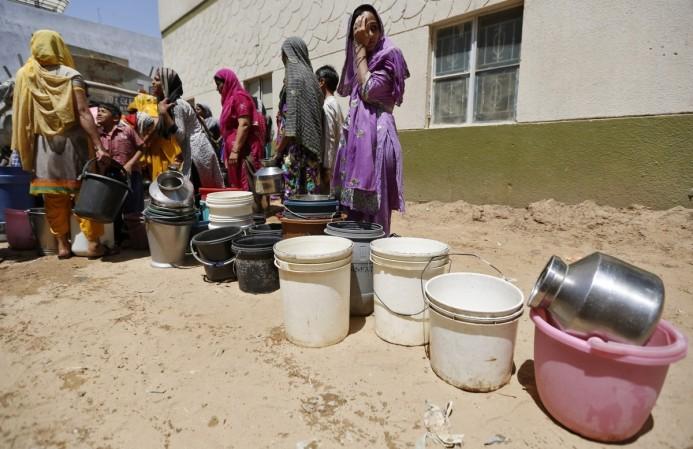
Life without ample water supply is going to be a reality for millions of people living in fastest-growing cities in South Asia and Africa, if the municipal authorities do not invest heavily in water infrastructure, according to a study conducted by World Resources Institute (WRI). Rapid urbanisation and lower investment in water infrastructure could cause a crisis situation in these cities.
The study found that nearly half of the population in 15 major cities lacks access to public piped water systems, with access lowest in sub-Saharan Africa and South Asia. For these households without public piped water, water from other sources is either too expensive or too unsafe, the institute said in a paper titled 'unaffordable and undrinkable: Rethinking urban water access in the global south.'
By 2030,45 cities with populations of more than 3 million, each could experience high water stress. The fastest-growing cities in South Asia and Africa -- which will add 1.5 billion residents by 2050 -- have the widest gaps in water service.
"In an increasingly water-constrained future, cities must take on a new role in managing water. They must ensure there is enough water, and that at it is affordable for all. Growing cities must prioritise water access before disaster hits," the paper noted.
Affordable Water
Cities must make water affordable for low-income residents, the paper said, adding that decades of attempts to increase the private sector's role and govern water as a private good have not improved access.
Even access to a public tap does not guarantee safe and reliable water. About 1 billion people receive piped water fewer than 24 hours each day, some of whom have access to water only a few hours a week.
Cities in Chile and Colombia have had success in improving access for low-income households by providing direct subsidies. In South Africa, cities provide a monthly allowance of water for free, a policy that stemmed from the national government's declaration of water as a human right.
In Lagos, Nigeria, 16 neighbouring households share a standpipe that has water three days a week—if their landlord makes monthly payments to the city. If not, service is cut off and households must wait in long queues for water from over-extracted boreholes or buy expensive bottled or sachet water. Neither option guarantees safe or affordable drinking water.
Of the 15 cities analysed, households in 12 cities did not receive continuous water service. When public piped water is not available, residents are forced to pay several times more to get water from tanker-trucks or vendors. For instance, Mumbai residents pay more than 52 times the cost of public water for privately supplied water. The World Health Organisation (WHO) recommends that households spend no more than 3-5 per cent of their monthly income on water and sanitation.
Municipal corporations and water utilities need to commit themselves politically and financially to enhance water availability. "We need to fundamentally recognise that equitable access to safe, reliable and affordable water is a human right necessary for everyone to live, move and thrive," added the report.














